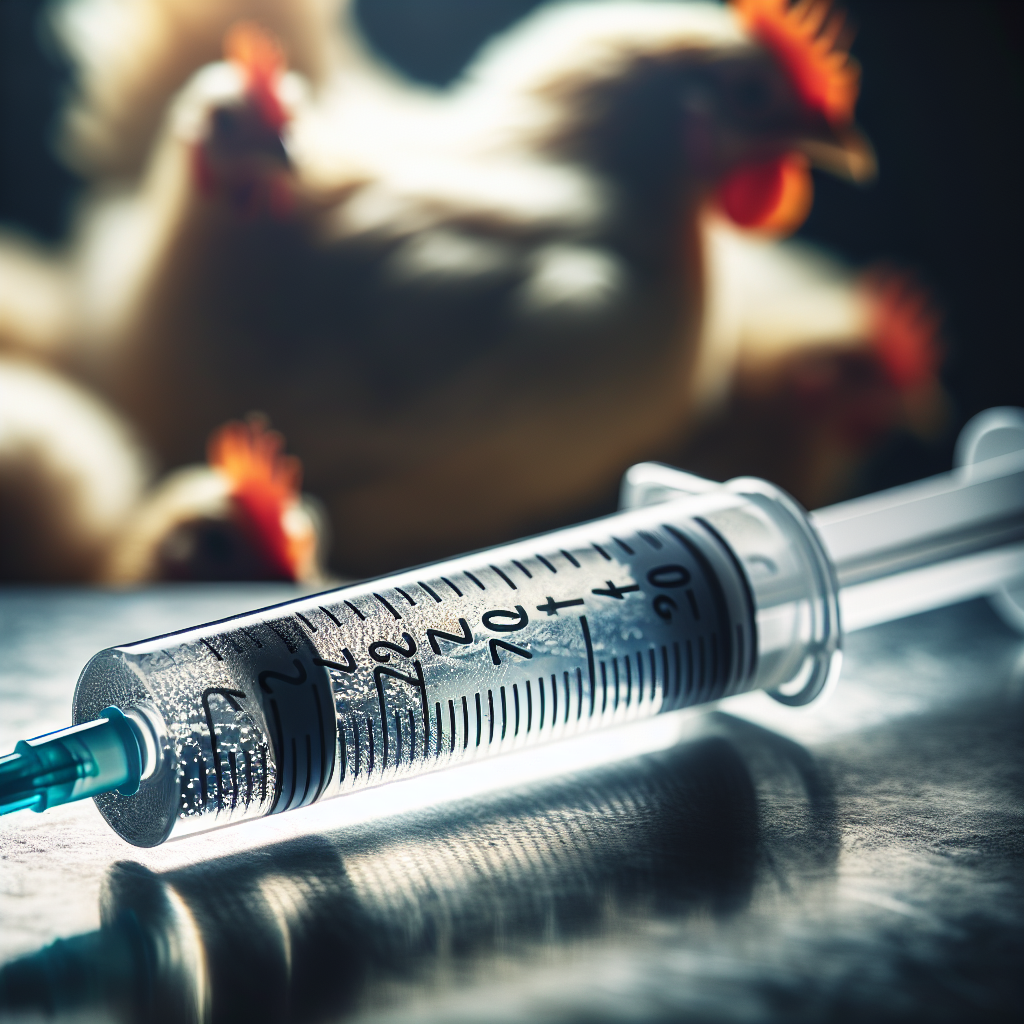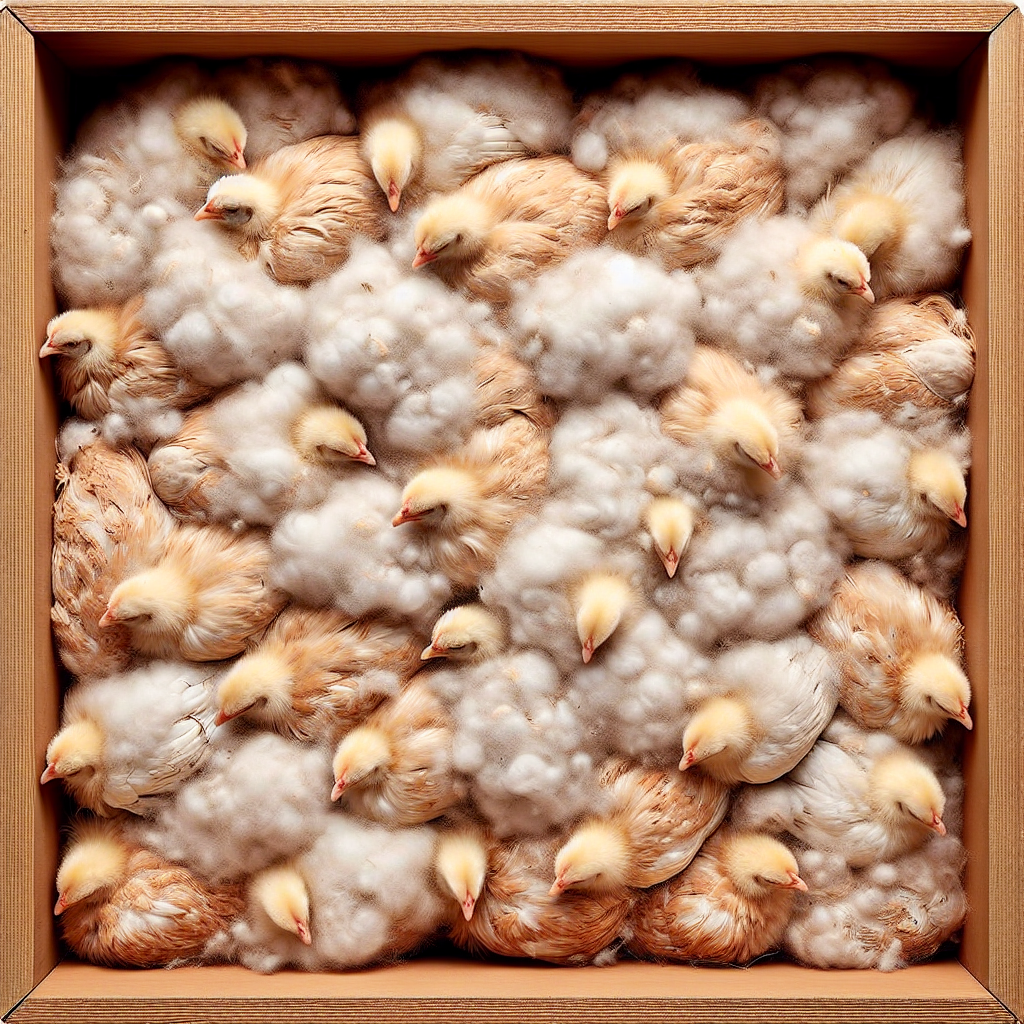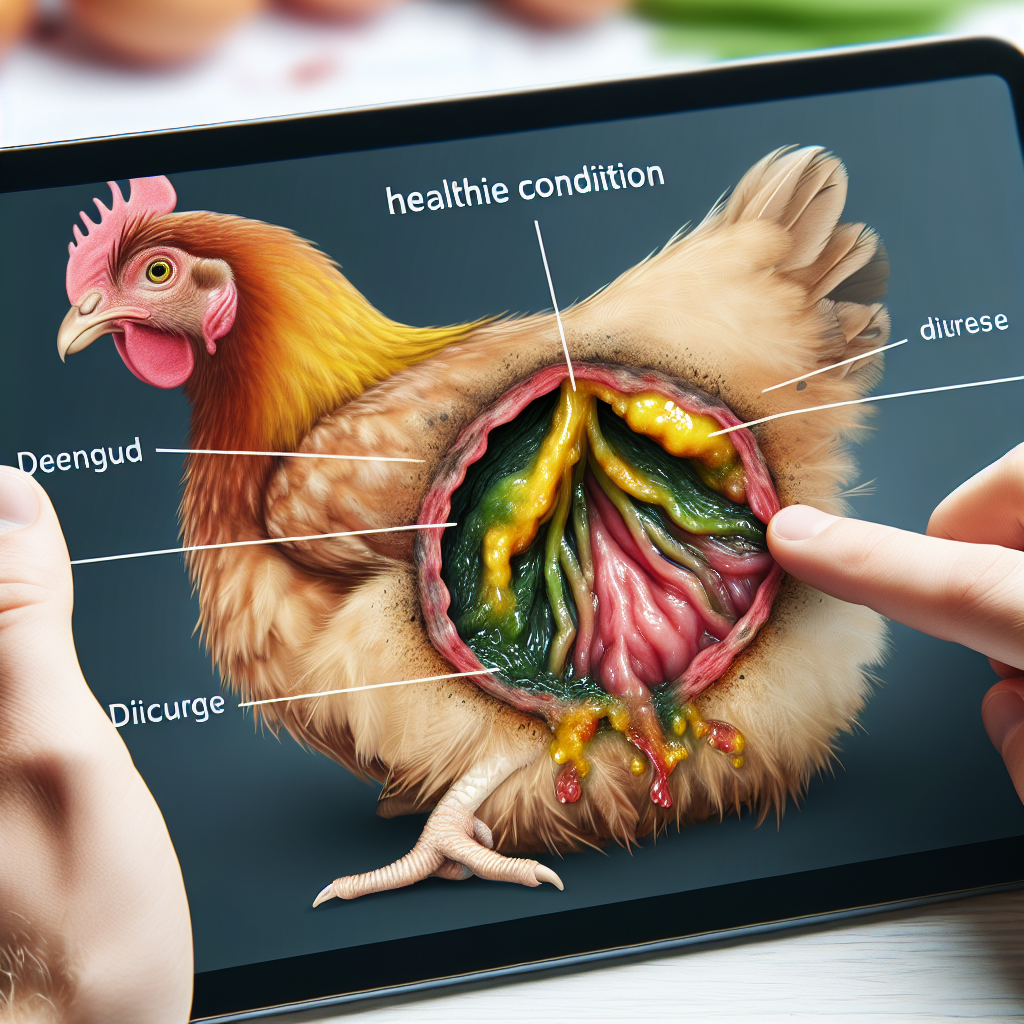Imagine you’re strolling through your backyard, enjoying the tranquility and admiring your beloved flock of hens. However, amidst the peaceful harmony, you notice something amiss as one of your precious hens appears distressed and refuses to lay eggs. Wondering what could be troubling her? In this article, we will explore the various signs to recognize egg-laying issues in hens and provide you with practical tips to treat and support your feathered friends back to health and productivity. So, let’s embark on this journey together and unravel the secrets of understanding and addressing these concerns!
Common Egg-laying Issues
Egg Binding
Egg binding occurs when a hen is unable to expel the egg from her body. This can be a life-threatening condition and requires immediate attention. Signs of egg binding include prolonged squatting, straining, and distress. To treat egg binding, isolate the affected hen in a quiet and warm environment. Provide warm soaks and gentle massages to help relax the hen’s muscles. If the egg doesn’t pass within a few hours, consult a veterinarian for further assistance.
Soft-shelled or Shell-less Eggs
Soft-shelled or shell-less eggs are a common issue among hens. This can be caused by factors such as calcium deficiency, improper nutrition, or stress. Such eggs are fragile and prone to breakage, leading to health risks for the hen. To address this issue, ensure your hens have a balanced diet with sufficient calcium. Adding calcium and vitamin D supplements to their feed can also help strengthen their shells. Additionally, maintaining a stress-free environment and providing proper nutrition will support the production of strong and healthy eggshells.
Egg Peritonitis
Egg peritonitis occurs when an egg breaks inside the hen’s body, leading to inflammation and infection of the peritoneum. Symptoms include lethargy, distended abdomen, and a foul-smelling discharge. Unfortunately, egg peritonitis is often difficult to treat and may require surgical intervention. Isolating the affected hen, providing warm soaks, and administering appropriate medications under veterinary guidance are essential steps. Regular health checks and maintaining a clean environment can help prevent this condition.
Egg Yolk Peritonitis
Similar to egg peritonitis, egg yolk peritonitis involves the presence of yolk material in the peritoneal cavity. It can be caused by reproductive disorders or infections. Affected hens may exhibit signs such as swollen abdomen, lethargy, and loss of appetite. Veterinary consultation is crucial for this condition, as treatment may require draining the yolk material and administering antibiotics. Proper nutrition, hydration, and stress reduction can aid in preventing egg yolk peritonitis.
Egg Eating
Egg eating can become a habit developed by a hen due to various reasons, such as a shortage of calcium or boredom. It is important to break this behavior as it can lead to a cycle of egg destruction. To prevent egg eating, ensure hens receive a balanced diet with sufficient nutrients, including calcium. Collect eggs regularly to minimize the chances of them being cracked or broken. Providing environmental enrichment and addressing any stressors in their surroundings will also help divert their attention from the eggs.
Egg Retention
Egg retention occurs when a hen fails to lay her egg properly, causing it to remain inside her for an extended period. This can be a serious issue and may lead to infection or egg binding. Observe any signs of distress, abdominal swelling, or discomfort. If you suspect egg retention, consult a veterinarian for appropriate treatment. Isolating the affected hen, providing warm soaks, and massaging her abdomen may help in some cases. Professional intervention, such as hormonal therapy or surgical removal, may be required.
Double Yolk Eggs
Occasionally, hens may lay eggs with two yolks instead of one. While double yolk eggs are not necessarily harmful, they can pose risks for hens. These eggs often have larger sizes and may cause difficulties during laying, leading to egg-binding or other complications. If you notice consistent double yolk eggs or the hen experiencing difficulties, consult a veterinarian for guidance. Managing the hen’s diet, ensuring proper nutrition, and maintaining a stress-free environment can help prevent issues with double yolk eggs.
Egg Production Decline
As hens age, their egg production naturally declines. However, if you notice a sudden or significant decrease in egg production, it may indicate an underlying issue. Factors such as stress, inadequate nutrition, seasonal changes, or health problems can contribute to a decline in egg production. Providing a balanced diet, supplementing with appropriate nutrients, and managing the hens’ stress levels can help maintain consistent egg production. Regular health checks and addressing any potential health issues promptly will also support their overall well-being.
Eggshell Abnormalities
Eggshell abnormalities can manifest in various forms, including thin shells, rough or ridged surfaces, or discoloration. These abnormalities can be attributed to nutritional deficiencies, stress, or underlying health conditions. To prevent eggshell abnormalities, ensure hens receive a balanced diet rich in essential nutrients, particularly calcium. Proper lighting, stress reduction, and regular health checks are also vital. Additionally, maintaining a clean and sanitary environment will minimize the risk of infections and eggshell abnormalities.
Egg Size Anomalies
Hens normally lay eggs within a consistent size range. However, certain factors can cause anomalies in egg size. These factors may include genetics, age, nutritional imbalances, or diseases. Some hens may consistently lay smaller or larger eggs, which can indicate underlying issues. Regular health checks and consultation with a veterinarian can help determine the cause and appropriate actions to address these anomalies. Ensuring proper nutrition and maintaining a suitable housing environment will contribute to consistent egg size.
Recognizing Egg-laying Issues
Abnormal Posture or Behavior
Observing your hens for abnormal posture or behavior is crucial in recognizing potential egg-laying issues. Look out for hens frequently squatting or straining for an extended period, as it may indicate egg binding or discomfort. Any signs of distress, agitation, or abnormal positioning during nesting should be noted and monitored closely.
Lethargy or Weakness
Lethargy or weakness can be indicative of underlying health issues or egg-laying complications. If a hen appears overly fatigued, lacks energy, or exhibits weakness in her movements, it is essential to investigate further. Consider consulting a veterinarian to assess any potential problems and provide appropriate treatment.
Weight Loss
Weight loss in hens can be a sign of various health issues, including egg-related problems. If you notice a significant or unexplained decrease in a hen’s body weight, it is crucial to address it promptly. Conduct a thorough examination of the hen’s overall health and consult a veterinarian for guidance on potential treatments.
Change in Appetite
A sudden change in a hen’s appetite, such as a decrease or loss of appetite, can indicate egg-laying issues. Monitor if the hen shows disinterest in food or consumes significantly less than usual. Unusual eating behavior can be a result of discomfort or underlying health problems associated with egg production.
Reduced or Absent Egg Production
A noticeable decline in egg production or a complete absence of eggs should raise concerns about potential egg-laying issues. Keep track of your hens’ laying patterns and note any significant changes. While a natural decline occurs as hens age, a sudden cessation of egg production may indicate a health problem that requires attention.
Abnormal Egg Appearance
Inspecting eggs daily is crucial in recognizing abnormal appearances. Look for soft, thin, or misshapen shells, unusual colors, rough textures, or discoloration. If you consistently find eggs with abnormal appearances, it may indicate underlying issues that need to be addressed.
Discharge or Swelling
Discharge or swelling in the vent area can be a sign of infections, such as egg peritonitis or egg yolk peritonitis. Observe any abnormal fluids, swelling, or foul odors around the vent. If you notice such symptoms, it is essential to seek veterinary consultation to diagnose and treat the underlying cause promptly.
Pain or Distress
Hens experiencing egg-laying issues may exhibit signs of pain or distress. Watch out for any indications of discomfort, such as vocalization, excessive nesting behavior, or aggression towards other birds. If you suspect your hen is in pain or distress, contact a veterinarian for further examination and appropriate treatment options.
Cloaca Examination
The cloaca is the opening where hens lay eggs and eliminate waste. Conducting regular cloaca examinations can help identify any abnormalities. Look for redness, swelling, discharge, or any other signs of inflammation or infection. If you notice any issues, consult a veterinarian for a thorough examination and professional advice.
Veterinary Consultation
When recognizing any signs or symptoms of egg-laying issues, it is crucial to consult a veterinarian. A professional can provide an accurate diagnosis, recommend appropriate treatments, and offer guidance tailored to your hens’ specific needs. Regular veterinary check-ups and open communication will contribute to the overall health and well-being of your flock.
Treating Egg-laying Issues
Isolate the Affected Hen
When an egg-laying issue is identified, it is important to isolate the affected hen from the rest of the flock. This provides a calm and controlled environment for observation and treatment. Isolation also helps prevent potential stress or disturbances that could aggravate the condition.
Provide Calcium and Vitamin D Supplements
Calcium and vitamin D are vital for healthy eggshell formation and overall hen well-being. If there are indications of soft-shelled or shell-less eggs, it is essential to supplement the affected hen’s diet with the appropriate amount of calcium and vitamin D. Consult a veterinarian for recommendations on the dosage and frequency of supplementation.
Warm Soaks
Warm soaks can help relax the muscles and alleviate discomfort associated with egg binding or other related issues. Gently place the affected hen in a shallow container of warm water for about 20 minutes. Take care to support the hen’s body and ensure she is comfortable. Warm soaks can be particularly beneficial for hens experiencing difficulties in laying eggs or those displaying signs of distress.
Gentle Massage and Lubrication
In cases of egg binding or egg retention, gentle massage and lubrication can assist in stimulating egg movement and facilitating the laying process. Use a water-based lubricant or petroleum jelly on the vent area to reduce friction and aid in the passage of the egg. Massage the abdomen gently in a circular motion to help relax the muscles and promote egg expulsion.
Administering Medications
Certain egg-laying issues may require veterinary-prescribed medications for treatment. Antibiotics may be necessary to treat infections such as egg peritonitis or egg yolk peritonitis. Always consult a veterinarian for a proper diagnosis and prescription. Adhere strictly to the recommended dosage and duration of medication administration.
Surgical Intervention
In severe cases of egg-laying issues, surgical intervention may be necessary. This is typically performed under the guidance of a veterinarian. Surgical procedures can include removing retained eggs, draining abdominal fluid, or addressing other underlying conditions. This option is considered when other treatments have proven ineffective or when the condition requires immediate attention.
Preventing Egg Eating
To prevent egg eating habits from developing, provide suitable nesting boxes filled with clean bedding for your hens. Collect eggs promptly and regularly to minimize the chances of them being damaged or broken. Incorporate environmental enrichment, such as pecking toys or foraging opportunities, to keep hens engaged and reduce boredom.
Managing Egg Production Decline
As hens age, their egg production naturally declines. Managing this decline involves ensuring a balanced diet, maintaining proper lighting conditions, and mitigating stress factors. Provide hens with sufficient nutrients, including calcium, to support their overall health and eggshell production. Adjusting lighting schedules can help stimulate consistent egg production. Minimize stress by maintaining a calm and orderly environment for your flock.
Proper Nutrition and Hydration
Proper nutrition is vital in addressing and preventing egg-laying issues. Ensure your hens receive a balanced diet consisting of high-quality poultry feed supplemented with essential nutrients. Calcium-rich foods, such as oyster shells or crushed eggshells, can be provided separately. Additionally, hens must have access to clean and fresh water at all times to stay hydrated.
Maintain a Clean and Stress-free Environment
A clean environment is essential for the well-being of your flock. Regularly clean and maintain the coop, nesting boxes, and feeding areas to prevent the accumulation of dirt and bacteria. Minimize potential stress factors, such as overcrowding or predator threats. Providing a calm and stress-free environment will positively impact your hens’ overall health and egg-laying abilities.
Preventive Measures
Balanced Diet
Maintaining a balanced diet is crucial for the overall health and productivity of hens. Provide a well-formulated poultry feed that meets their nutritional requirements. Ensure a balance of proteins, carbohydrates, fats, vitamins, and minerals. Consult with a poultry nutritionist or veterinarian to tailor the diet to your specific flock’s needs.
Ensuring Adequate Calcium Intake
Calcium is essential for strong and healthy eggshells. Incorporate calcium-rich sources into your hens’ diet, such as oyster shells, crushed eggshells, or commercially available calcium supplements. Monitor their intake to ensure they receive sufficient amounts. Adequate calcium intake will support proper eggshell formation and minimize the risk of complications.
Proper Lighting
Maintaining appropriate lighting conditions is crucial for consistent egg production. Hens require a certain number of hours of light exposure each day to stimulate their reproductive systems. Use a timer to ensure consistent lighting schedules, providing 14-16 hours of light during the egg-laying period. This helps regulate their internal clock and promote regular egg production.
Managing Laying Boxes
Proper management of laying boxes contributes to a healthy and conducive environment for egg-laying. Provide clean and comfortable nesting boxes filled with appropriate bedding materials, such as straw or wood shavings. The boxes should be dark, quiet, and secluded to promote privacy and reduce stress during egg-laying. Regularly clean and replace the bedding to maintain hygiene.
Regular Health Checks
Conduct regular health checks to monitor the overall well-being of your hens. This includes observing their behavior, appetite, and physical condition. Be on the lookout for any signs of illness or abnormality. Early detection of potential issues allows for prompt treatment and helps prevent further complications.
Stress Reduction
Stress can negatively impact egg production and overall hen health. Identify and eliminate potential stressors in the environment, such as loud noises, overcrowding, or predator threats. Provide suitable space and perches for resting and ensure a calm and relaxing atmosphere for your flock. Minimizing stress helps maintain their reproductive health and egg-laying capabilities.
Maintaining Hygiene
Proper hygiene practices are essential in preventing infections and eggshell abnormalities. Regularly clean and disinfect the coop, feeding areas, and water containers to minimize the risk of bacterial contamination. Additionally, promptly remove any soiled or cracked eggs from the nesting boxes to prevent hens from developing egg-eating behaviors.
Inspecting Eggs Daily
Inspecting eggs daily allows for early identification of any abnormal appearances or irregularities. Check for signs of cracks, thinness, or discoloration. Promptly remove any damaged eggs to prevent health risks and maintain the quality of the remaining eggs. Regular inspection helps ensure the overall health and productivity of your flock.
Genetic Selection
Selecting hens with desirable genetic traits can contribute to healthier egg-laying capabilities. Work with reputable breeders or poultry suppliers to acquire hens with good egg production genetics. Breeding from hens with high productivity and strong reproductive health enhances the chances of offspring with similar characteristics.
Proper Housing Conditions
Providing appropriate housing conditions is essential for the well-being and productivity of your hens. Ensure the coop is well-ventilated, clean, and spacious enough to accommodate your flock comfortably. Proper temperature control, suitable perches, and adequate nesting boxes contribute to a conducive environment for egg-laying.
By recognizing and addressing egg-laying issues promptly, you can promote the health and productivity of your hens. Implement preventive measures, provide appropriate treatment, and consult with a veterinarian to ensure the well-being of your flock. With proper care, your hens can enjoy a fulfilling and productive egg-laying journey.




